Given Physical Form
In which Norm is very happy to see PREY, LOKI: SEASON ONE, STAR TREK: PICARD and STAR TREK: PRODIGY -- all of which were commissioned for streaming services -- arrive on disc.
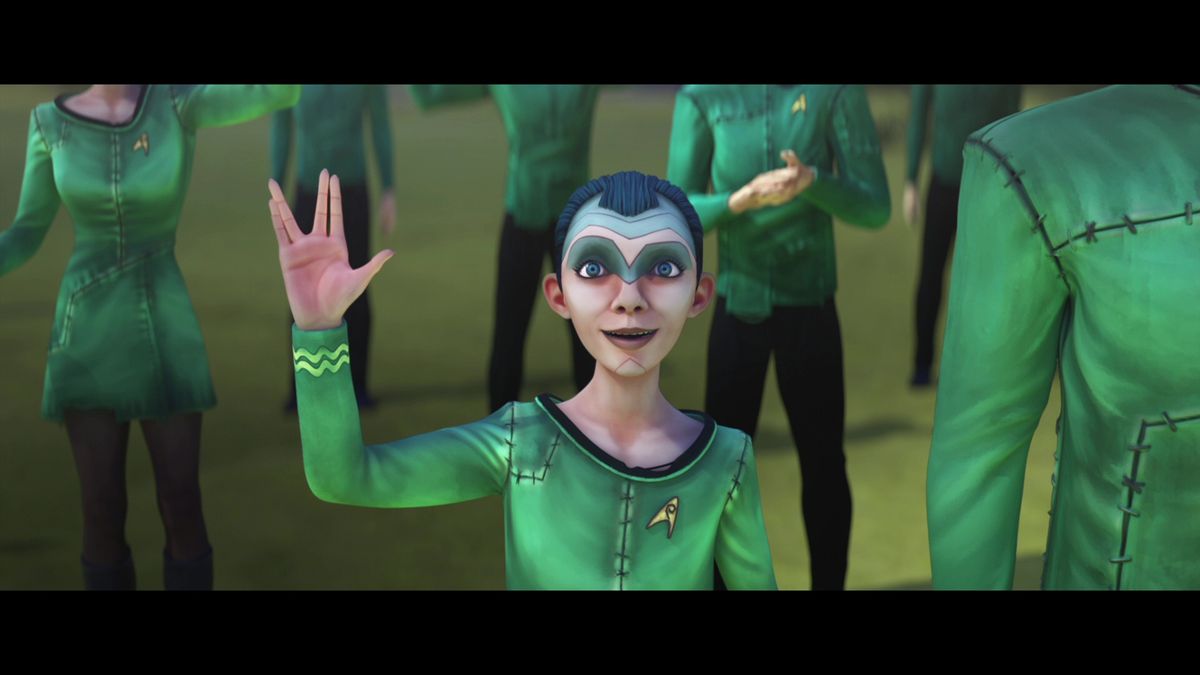
This week’s column is a little weird, being as how I find myself reviewing things I’ve already covered. I wrote about the first season of Marvel’s Loki when I was still at NOW, I reviewed Daniel Trachtenberg’s brilliant Predator prequel Prey when it dropped on Disney+ last summer, and I raved about Star Trek: Prodigy when the first half of its delightful first season arrived on Blu-ray this past January.
So why am I writing about them again? Because they’re all available on disc now – Loki: Season One and Prey in 4K and Blu-ray editions from Walt Disney Home Entertainment, and the second half of Prodigy freshly on Blu from Paramount Home Entertainment – rather than exclusively streaming on the services for which they were produced. And that’s no small thing, because once something is on disc people can actually own it, in perpetuity, immune from further tampering. No post-release tweaking, no re-editing and most importantly no deletion. If Disney decides to remove Prey from its streaming library to satisfy a line item on someone’s balance sheet, I’ll still have a copy right here on my shelf. Ditto for Prodigy, which was scrubbed from Paramount+ a few months ago; as of now, the only way to revisit (or discover) Kevin and Dan Hageman’s zippy animated expansion of the Star Trek universe is to spin up the Blu-rays.
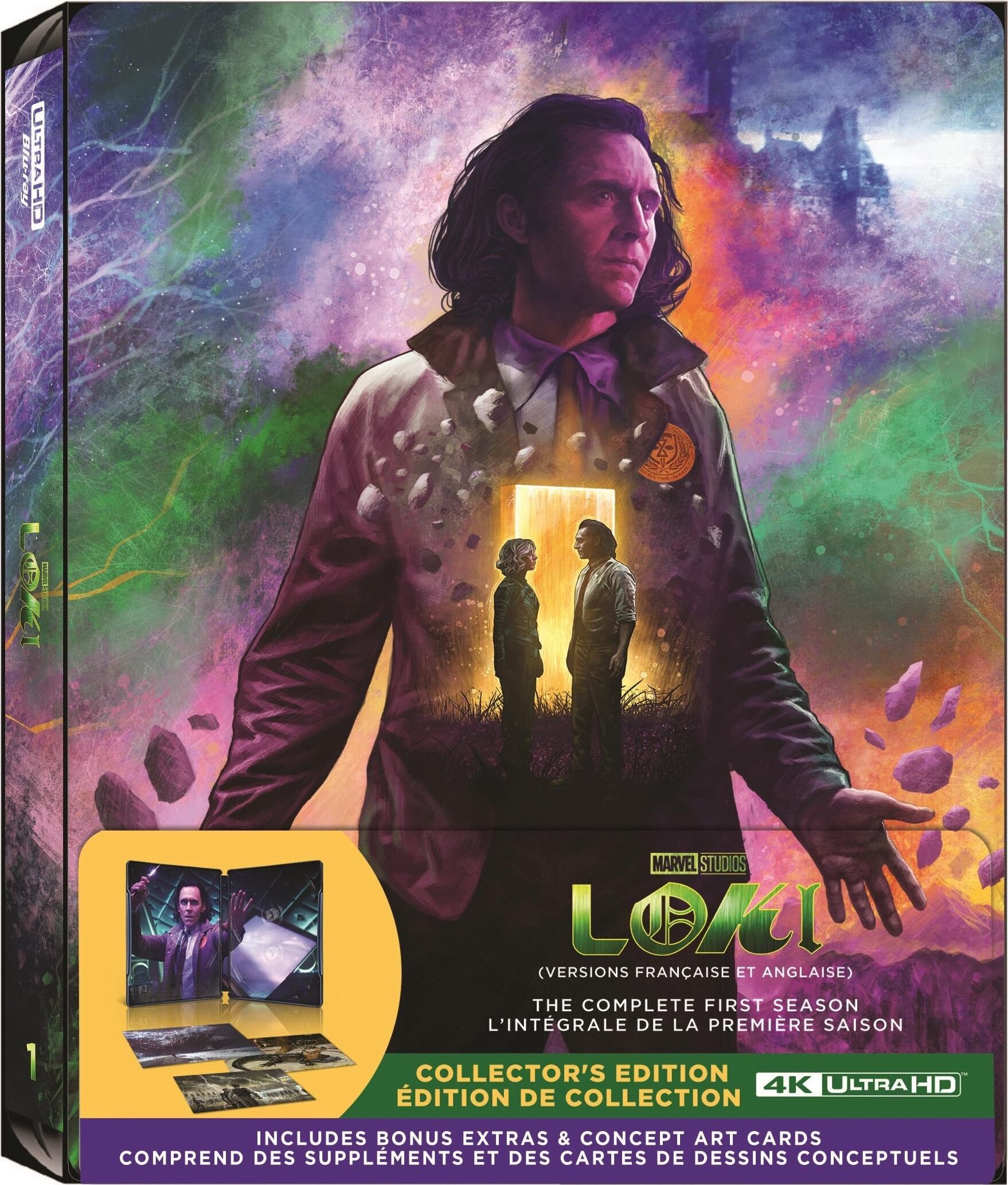

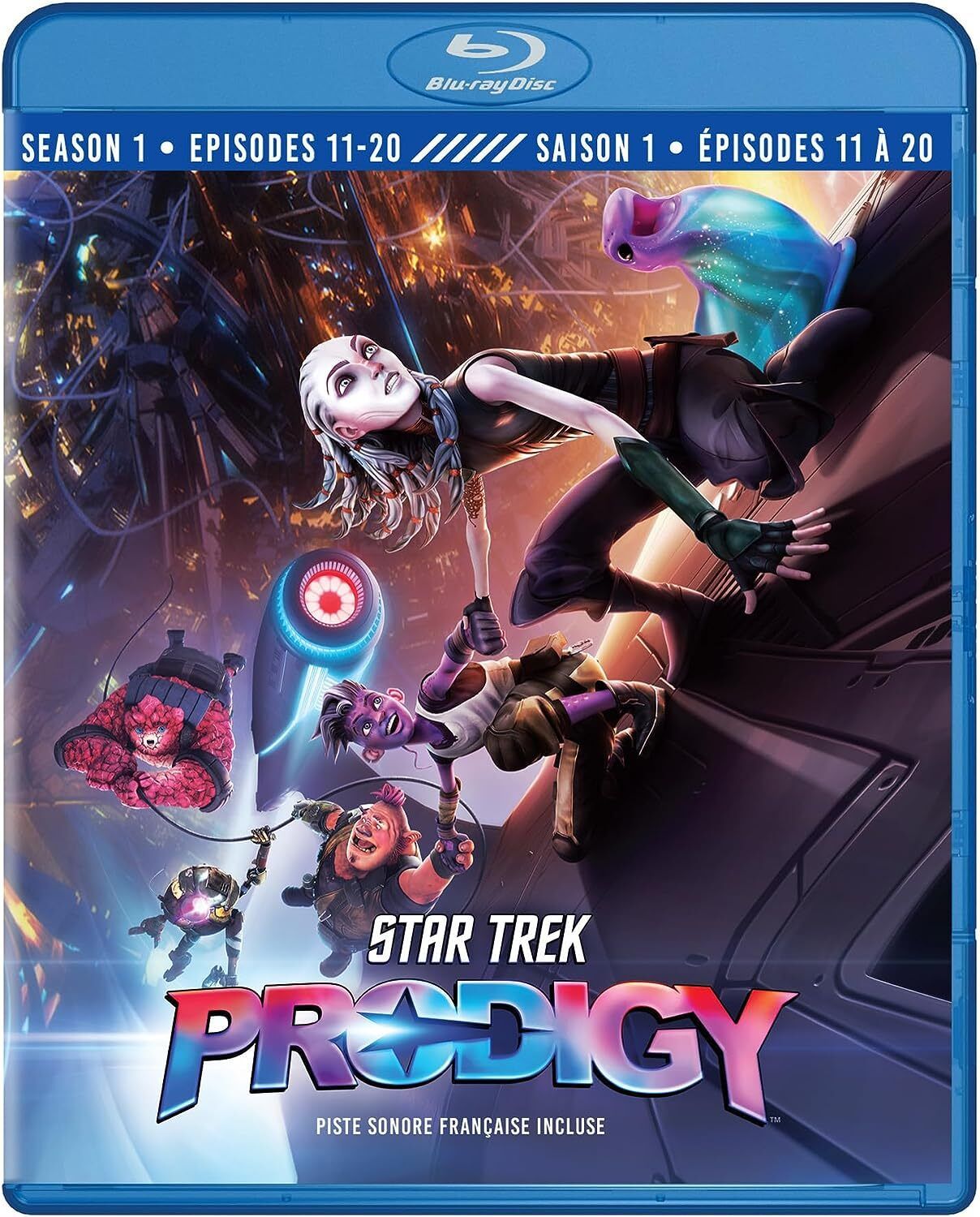
The 4K and Blu-ray releases of Loki: Season One (in fancy steelbook packaging, no less) may be little more than a tease for the show’s second season, which kicks off this week on Disney+, but they exist, and this isn't the only Disney streaming series getting a physical release before the year is out. All of this matters, because it’s a statement that the market for discs is still very much alive – and that streaming and physical media can co-exist and maybe even support one another. I have no idea how much of a print run any of titles is getting, so if you want ’em, buy ’em while you can. But I guess I’d say that about every disc out there.
The other reason to buy the discs is to see how these productions really look and sound, without the heavy compression of their video and audio data necessitated by streaming. The stylized, smoothened animation of Prodigy suffers the least, but the Blu-ray version is still considerably richer – at least going by the comparisons I made when the first half of the season was released, as the series is no longer on Paramount+ to check. (Like I was saying.)
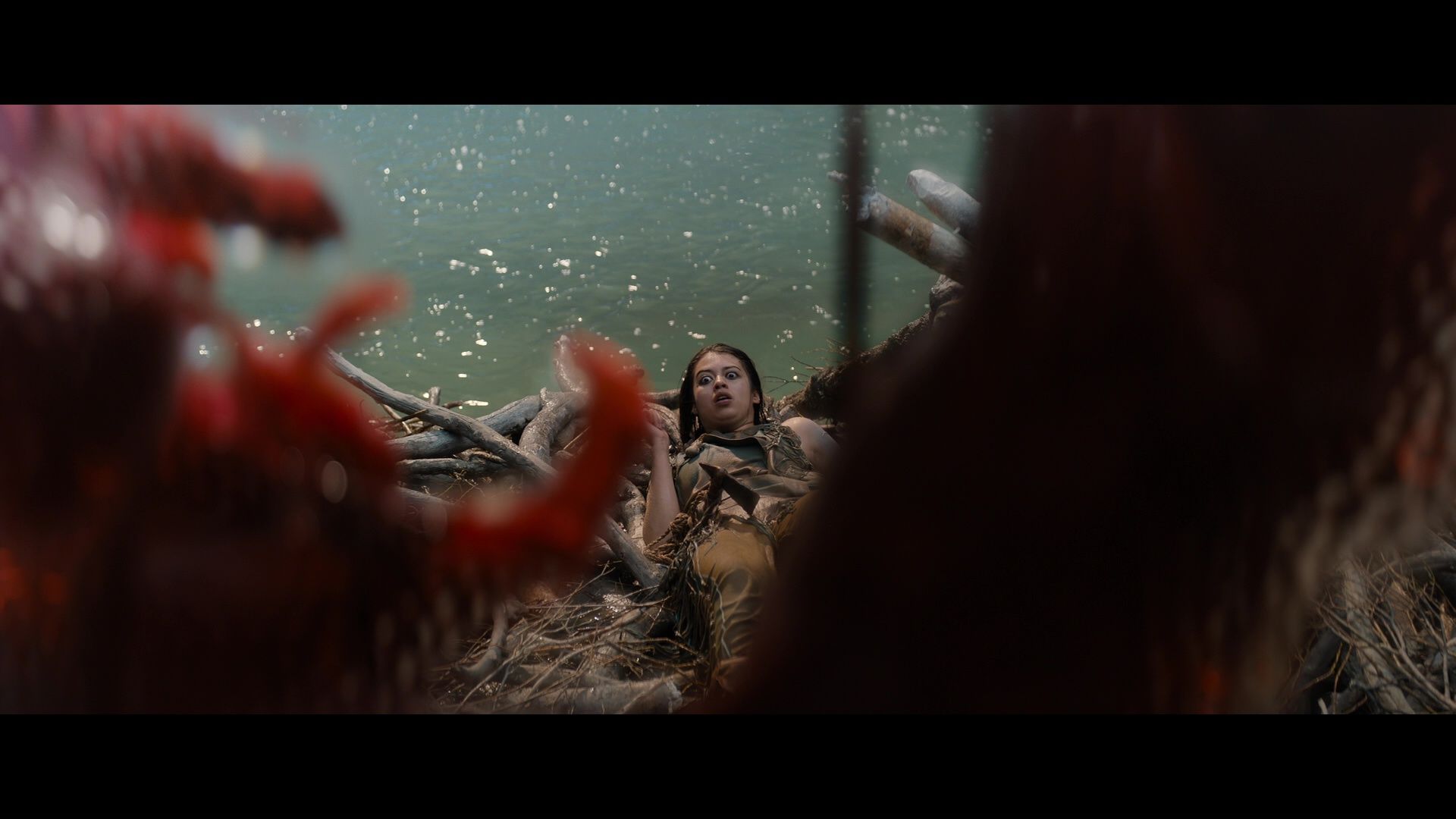
And Disney’s UHD discs of Prey and Loki are just pure pleasure. Prey’s high-bitrate presentation delivers richer colors and a denser, more textured atmosphere in the mist, smoke and fog that both Amber Midthunder’s Naru and her extraterrestrial opponent use as cover on the Great Plains, all while enveloping the viewer in a Dolby Atmos sound field that makes room for both natural and unnatural sources, with Sarah Schachner’s woodwinds-and-strings score rolling through the speakers as though the orchestra is just offscreen. Each Predator film plays with technological developments in different ways, but the you-are-there tactility of Prey is something else entirely, and this presentation brings it home wonderfully.
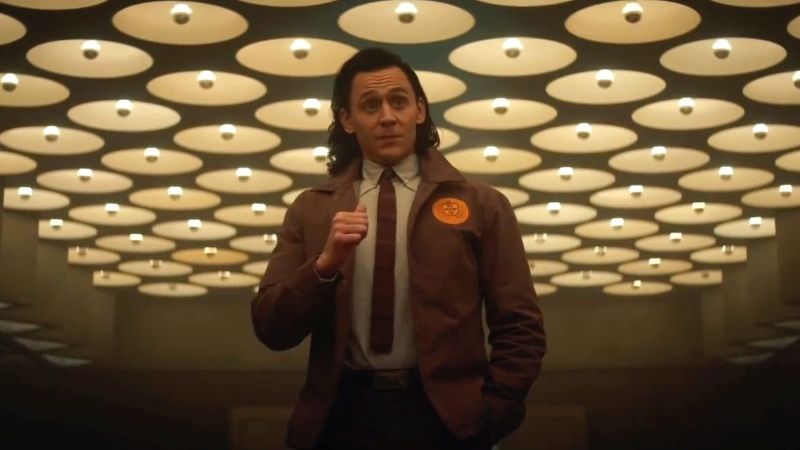
Loki is a little less of a leap, as the discs' HDR grade has a darker overall tone that sometimes works against the series’ visual flair. I think it’s meant to underscore the ’70s-inflected drabness of the Time Variance Agency, but it dulls down the more spectacular settings as well, at least in the middle episodes. Loki and Sylvie’s race against time on the doomed world of Lamentis – from a pockmarked quarry to an exploding Space Vegas – feels like it wants to be brighter and stranger than it appears here, though later sequences, like the jaunt to the end of time and the final episode in Kang’s weird castle, find a better visual balance.
The discs also offer a wider range of supplemental material than their streaming counterparts; Loki includes the in-depth, hour-long Assembled special on the making of the show (which was produced for Disney+, of course), but also offers a couple of deleted scenes, a gag reel, the complete TVA orientation video and a short featurette about the deliberately mundane design of the show’s chrono-bureaucracy that quietly swerves into a tease for the show’s second season, which just premiered today on Disney+.
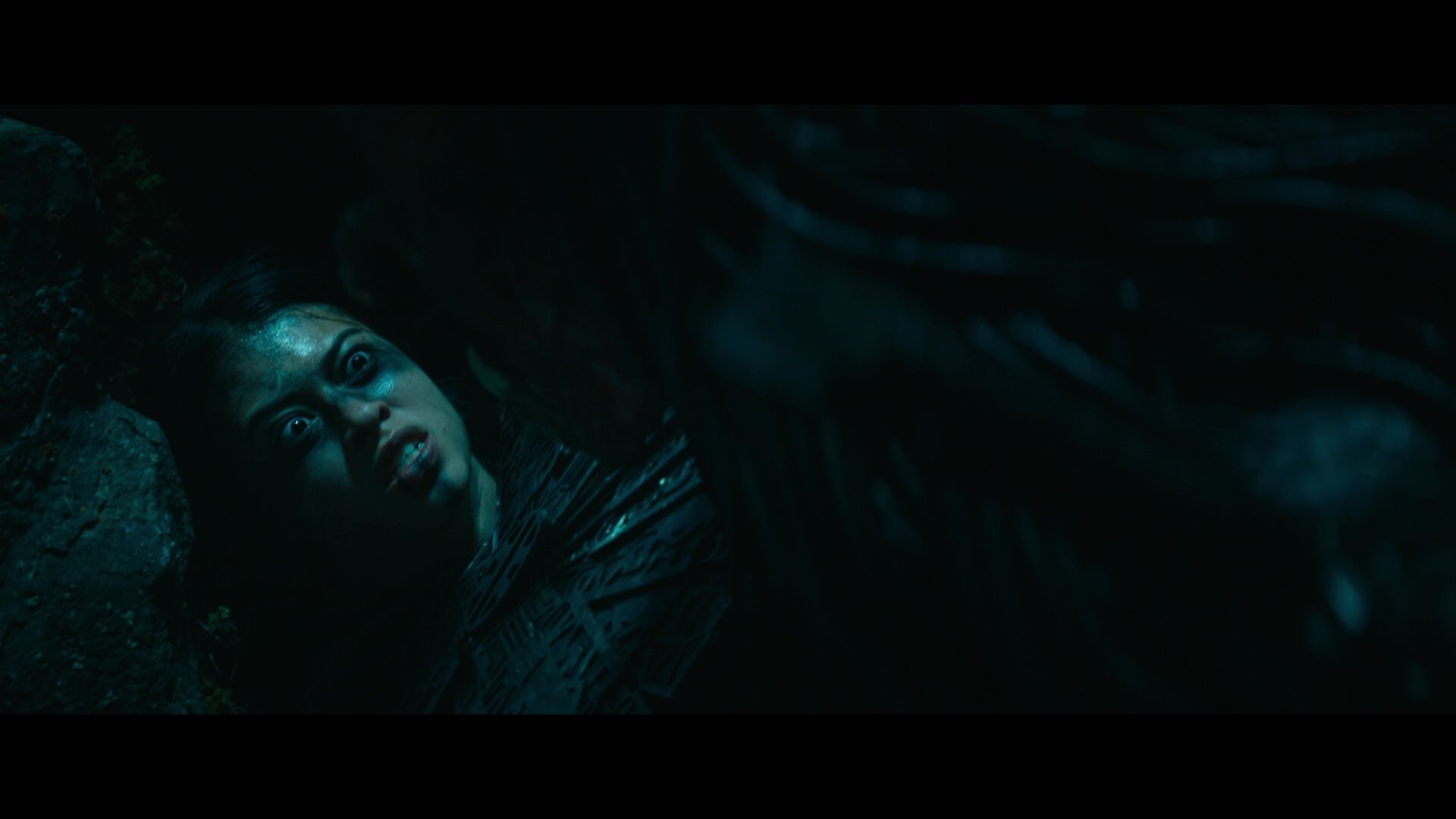
Prey slides its supplements on the companion Blu-ray platter, and they’re worth swapping discs to see: There’s a production featurette that explores the production’s determination to respect and showcase the Comanche culture of its characters at every turn – a commitment that’s elaborated on at length in a half-hour Q&A with Trachtenberg, Midthunder, producer Jhane Meyers, editor Angela M. Cantazaro, DP Jeff Cutter and veteran effects designer Alec Gillis recorded following a guild screening last year. There are also a handful of deleted scenes with Trachtenberg’s commentary; a feature commentary track with Trachtenberg, Midthunder, Cutter and Catanzaro is included on both the 4K and Blu-ray discs – as is that Comanche-language track, though it’s not listed on the jacket specs.
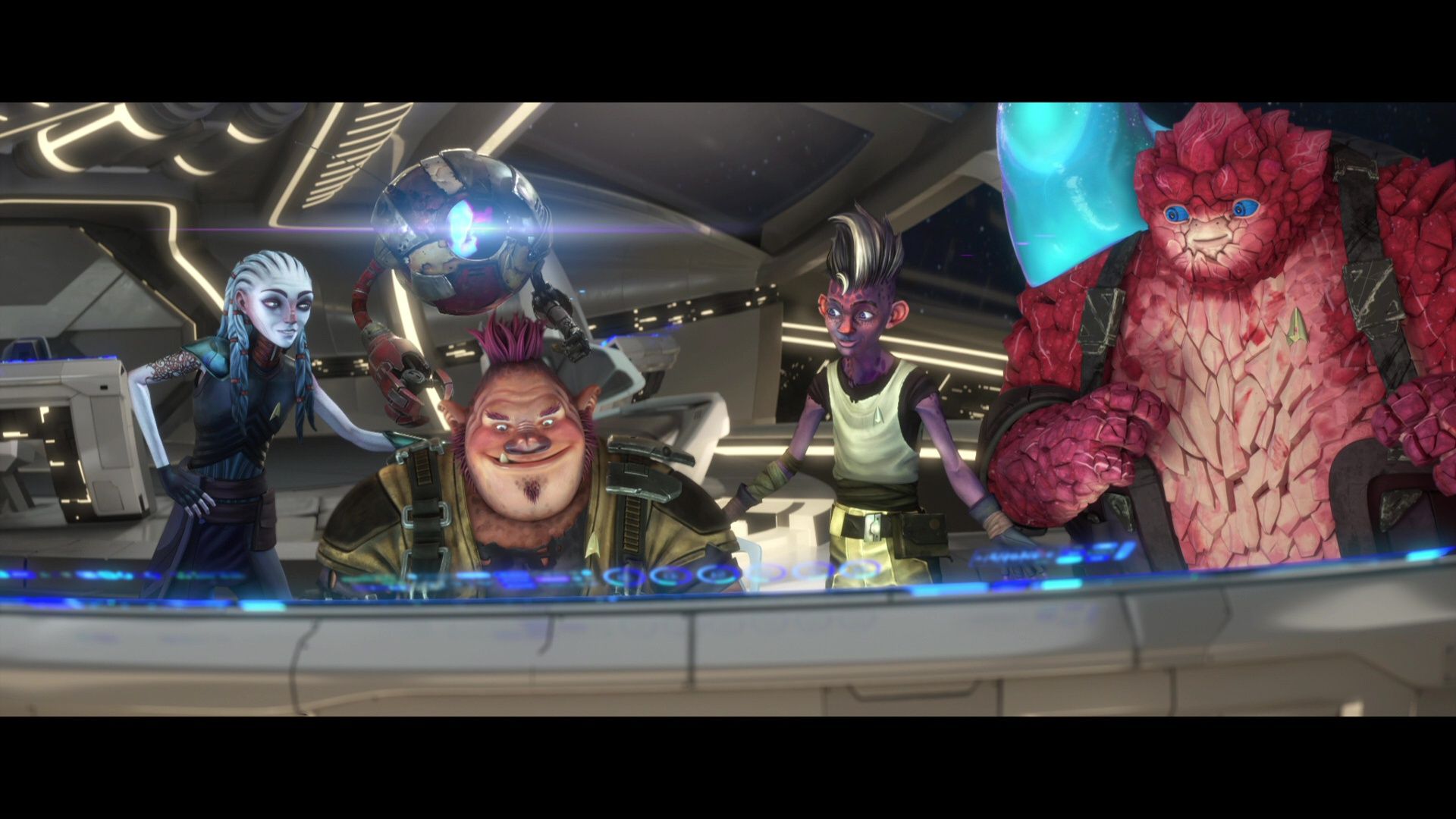
And the second half of Prodigy’s first season adds three more featurettes with the cast and creators. Two more “Producing Prodigy” featurettes take nerdy dives into the design of the episodes’ planets and starships – including an animated Borg cube that couldn’t be too scary, given the younger audience, but still had to be creepy enough to seem like a real threat – while the longer “The Odyssey of Prodigy” covers the season’s pivot into a more sophisticated narrative, with the return of certain key Trek characters – most crucially the “real” Kathryn Janeway, who is rather different from the warmer, more understanding hologram version built into the Protostar – and the slow integration of our heroes into the larger universe of Starfleet.
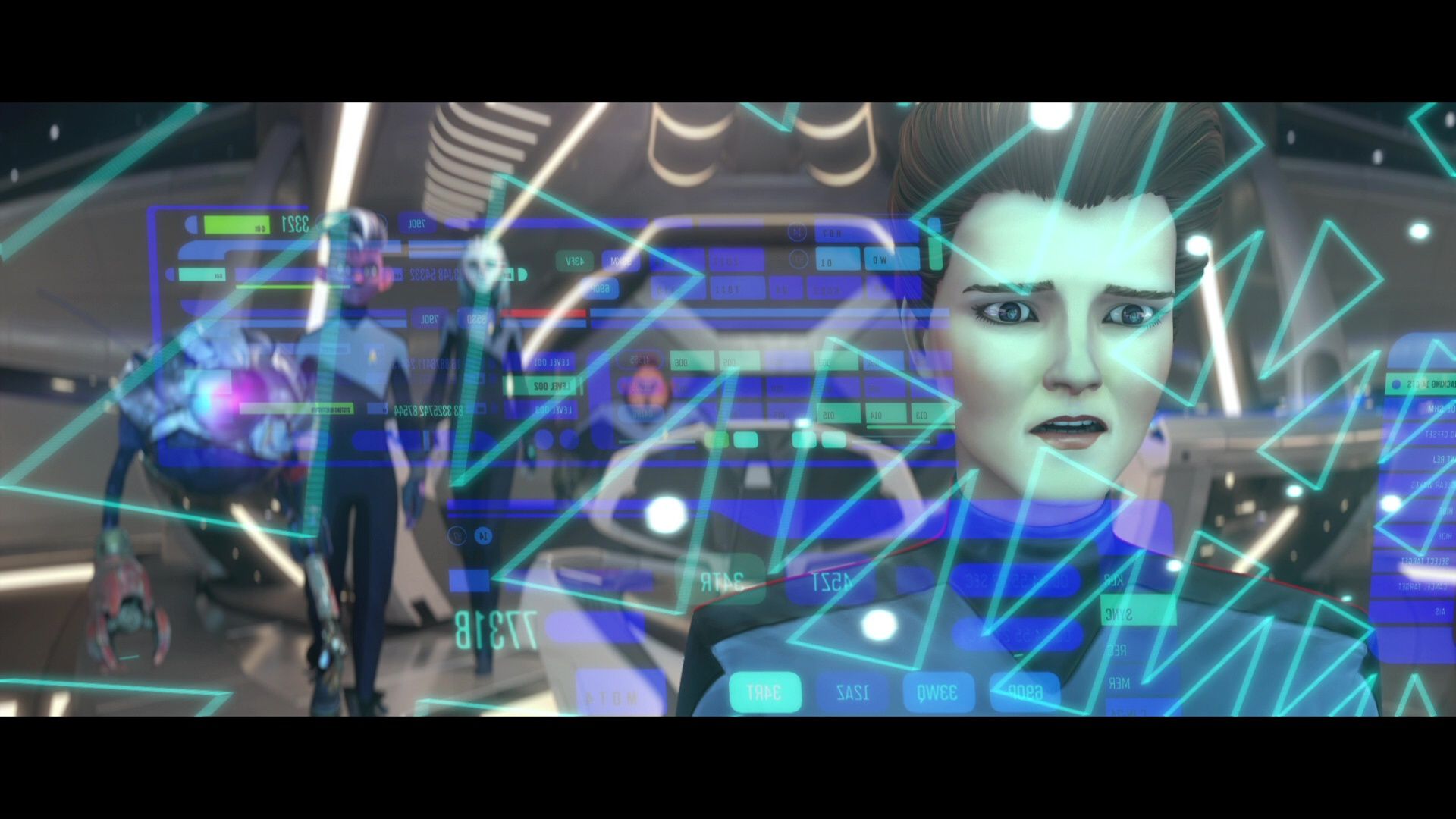
Kate Mulgrew discusses her performances of both Janeways, as well as the fun of channeling Brett Gray’s Dal in a body-swapping episode; Gray and Ella Purnell also turn up to discuss their voice work, and the Hageman brothers happily discuss the pleasures of writing a Star Trek show for kids making their “first contact” with the property, and the joys of seeding deep-cut references to the original series and The Next Generation – as well as using the series as a way to check in on the Voyager crew. Everyone’s having so much fun making this show – and taking so much pleasure in the larger mission of reintroducing Trek to kids – that I’m hoping they find a way to give Prodigy the second season it richly deserves.


Prodigy wasn’t the only Star Trek series that arrived on disc last month, though. Paramount also released the third and final season of Star Trek: Picard on Blu-ray, both on its own and in a Complete Series collection – and while I wouldn’t argue that this show ended before its time, given two previous cycles that fell somewhere between incoherent and pointless, Season Three pulled the whole thing together, leaning into the nostalgia the show had flirted with in the past to give Patrick Stewart’s aging Jean-Luc Picard a proper last hurrah – and a reunion with his Next Generation co-stars that felt both earned and worthy of the cast’s participation. Picard’s inability to let go of his friendship with Data formed the spine of the first season – and gave Brent Spiner an excuse to come back in various guises, as he would in the second season – but that relationship also felt like an excuse to bring back a fan favorite without acknowledging that the whole appeal of The Next Generation is that every character was a fan favorite on one level or another.
TNG was a show about having space adventures with your chosen family, with characters bonding and hanging out together in their off-hours, which worked so well for character development that it became a fundamental element of every Trek show that followed. (It’s even being retconned into the original series via Strange New Worlds.) And while Picard attempted to give Jean-Luc a new group of friends and comrades, among them Jeri Ryan’s beloved Voyager breakout Seven of Nine and Blindspot villain Michelle Hurd as Picard’s pal and Seven’s eventual love interest Raffi, the lack of a mission structure and Stewart’s increasing frailty meant a lot of things had to happen to Picard, rather than having him drive the story. Season Three roots its story in Picard’s personal history and his friendship with the crew of the Enterprise-D all those years ago, wrapping it in the skin of a starship chase picture not unlike The Wrath of Khan and giving everyone a stake in the action.
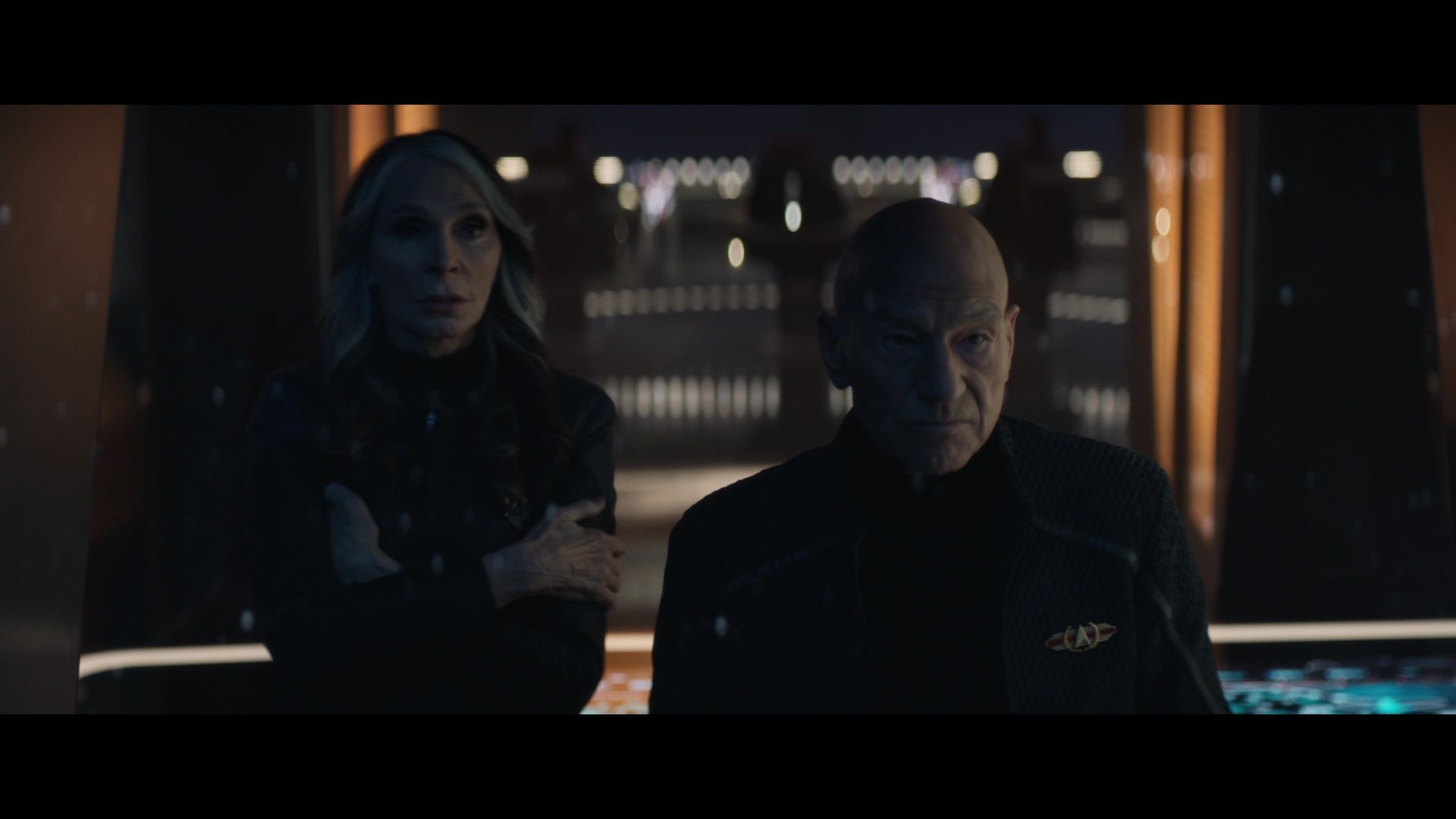
And so an encoded distress call from Beverly Crusher (Gates McFadden) – who disappeared from his life decades earlier without explanation – leads Jean-Luc to tap his old number one Will Riker (Jonathan Frakes) and pay a visit to the USS Titan-A – where first officer Seven is having a rough time under the command of the headstrong Captain Liam Shaw (Todd Stashwick) – and surreptitiously use that ship to investigate Crusher’s disappearance. Shaw quickly determines that Picard and Riker aren’t being totally up front about their purpose on board, which pits the officers against one another just as the villainous Vadic (Amanda Plummer) arrives to cripple the Titan-A and demand they surrender Crusher and her twentysomething son Jack (Ed Speleers), a heretofore unknown character who seems to be very important to … something.
It’s the start of an efficient, well-paced story that stretches over ten episodes, brings back a whole mess of familiar faces from TNG and elsewhere, and generally recaptures the sense of fun and adventure that we think of when we remember the Trek of the past, and which previous seasons of Picard didn’t seem to consider at all. Partially that’s because Patrick Stewart remains a powerhouse of an actor and deserves meaty emotional material, but there was also a level of self-importance to those earlier stories that made the stakes feel impossibly high; Jean-Luc Picard found himself at the center of a galactic crisis every other hour, whereas in the olden days that happened like once every three seasons. Season Three has its existential threat as well, but it waits until the last minute to bring it up, once everyone’s had time to catch up and get comfortable.
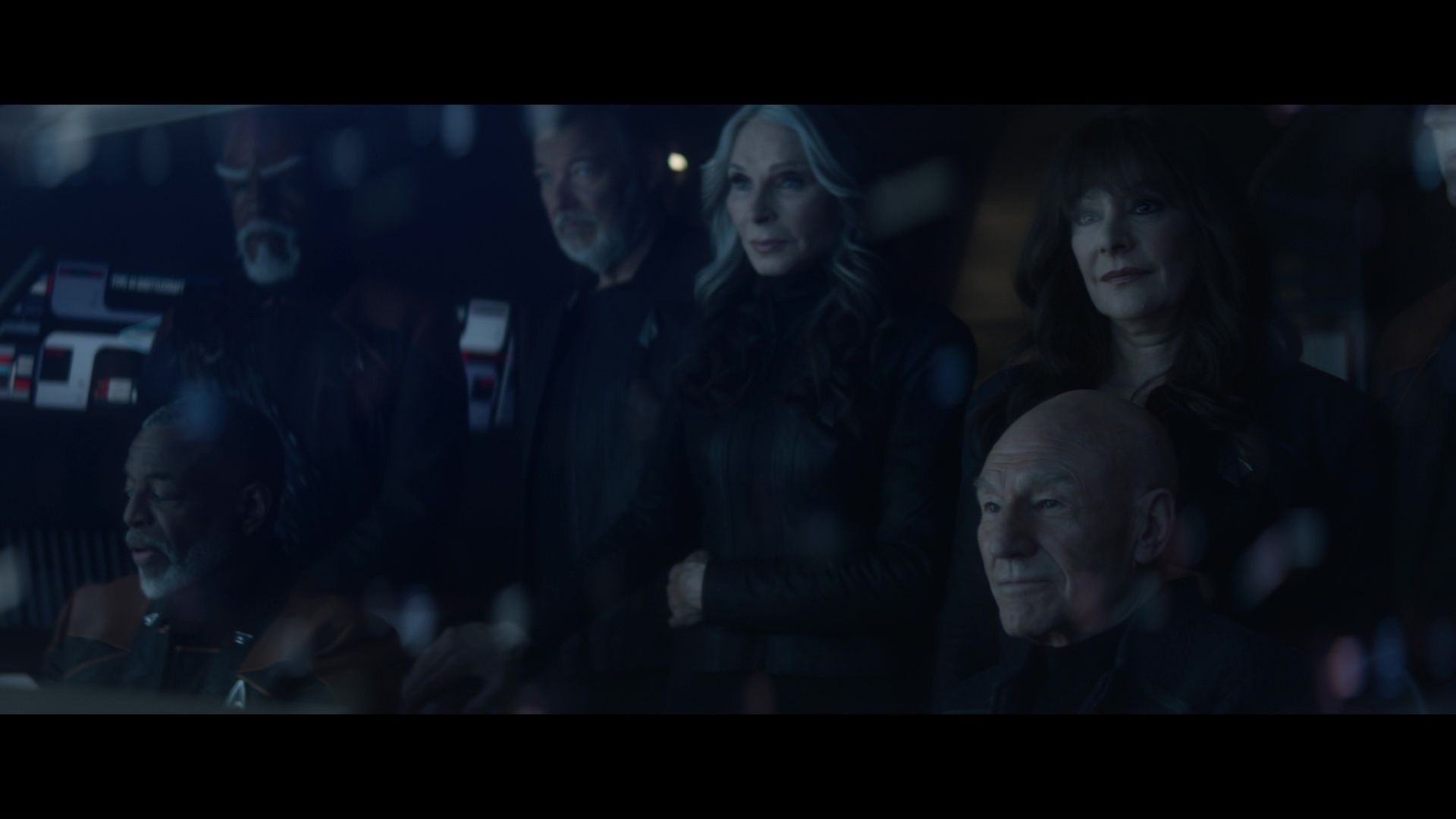
That’s the other thing this season of Picard does really well: It acknowledges the passage of time for the characters as well as the audience. Their time on the Enterprise-D may have been the defining experience of their careers, but they’ve gone on to do other things, and have families – or not – and grow as characters. (For example, LeVar Burton’s engineer Geordi LaForge is running a starship museum now, because of course he would, and he has two daughters, because of course he does.) We get to share in the clear affection these people have for one another, but they also carry experiences we didn’t get to see, and the actors can play those notes as well.
Season Three of Picard doesn’t just pick up where we left off; it’s attempting something richer and more daring, an admission that we’re all older now, and what we want from the past isn’t always available to us the way we think we want it. It’s a tricky thing for any legacy revival to deal with, but Matalas gets it exactly right.
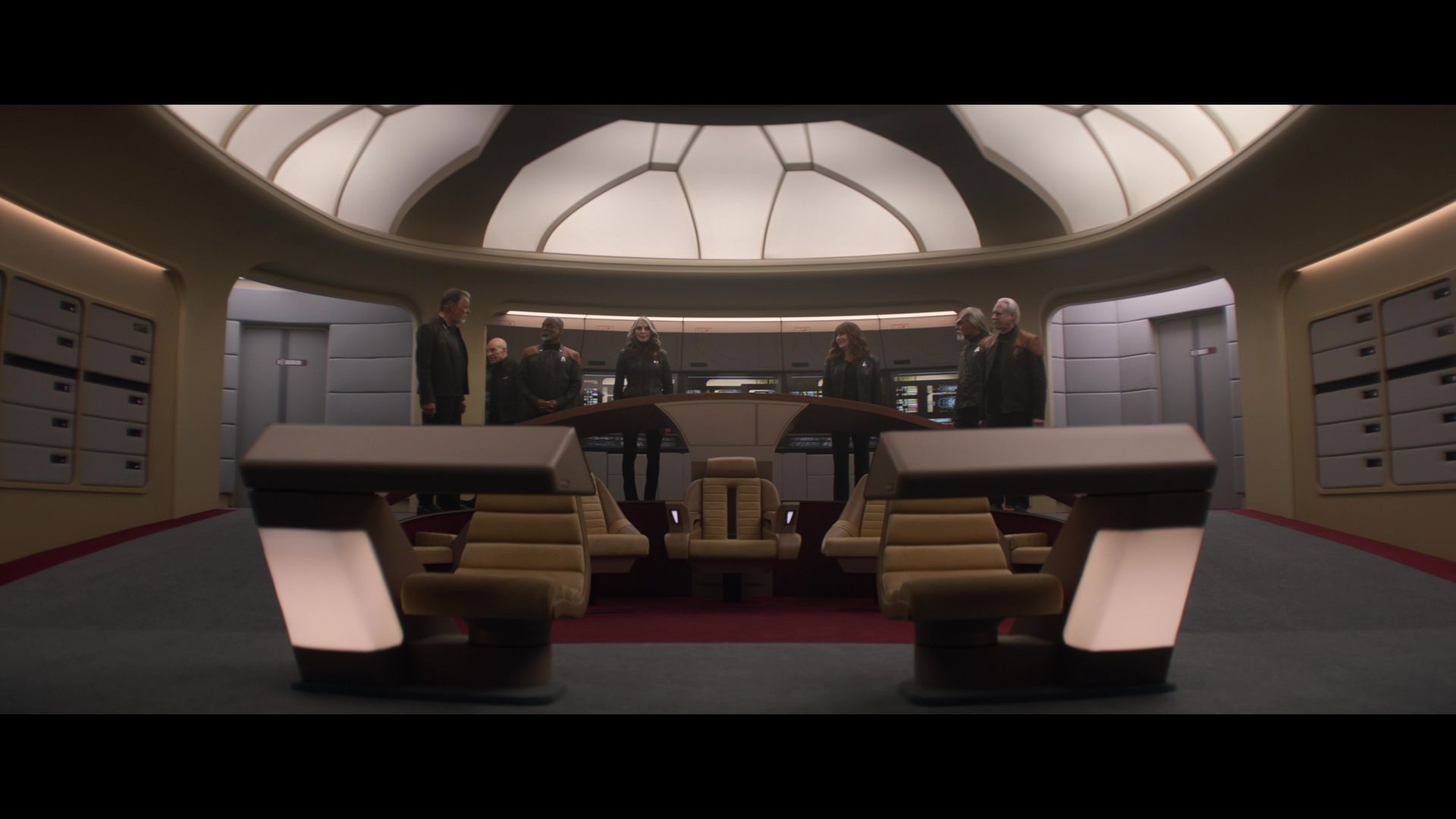
Those who want proper nostalgia from these episodes will love the Blu-ray set, which features cast-and-crew commentary on five of the season’s 10 episodes. Showrunner Matalas appears on every track, joined by some combination of Frakes, Ryan, Speleers and/or Stashwick; composer Stephen Barton turns up on the first episode, McFadden and Hurd on the third, and Burton and Spiner drop in for the sixth, which reunites the actors in a really lovely way. Further extras include deleted scenes, an awfully sweet gag reel, featurettes on the Enterprise-D cast reunion, Plummer’s new antagonist and the making of the final episode, “The Last Generation,” as well as a long, loving look at the reconstruction of the Enterprise-D for the new series.
It’s all very sweet, and very much For The Fans, going all in on the communal warmth the show itself is smart enough to dole out very carefully. Like I said, I almost want to see another season of this. But I’m also very happy that someone knows when to call it quits.
To that end, and perhaps to underscore that this really is Stewart’s last turn in the role, Paramount is also preparing a massive 54-disc Picard Legacy Collection coming November 7th, just in time for holiday gift giving.
... that’s right, fifty-four Blu-ray discs – including all seven seasons of Star Trek: The Next Generation, all four of the Picard feature films and all three seasons of Picard, as well as a bunch of very nerdy promotional goodies like badges, playing cards, drink coasters and an updated version of The Wisdom of Picard.
I would scoff, but then I did love all the archival marketing stuff they packed into that special edition of Star Trek: The Motion Picture. So I’ll just raise an eyebrow, and see what it looks like when it shows up.
Loki: Season One and Preyare now available on 4K and Blu-ray from Walt Disney Studios Home Entertainment. Star Trek: Picard – Season Three, Star Trek: Picard – The Complete Series and Star Trek: Prodigy – Season One, Episodes 11 to 20 are now available on Blu-ray from Paramount Home Entertainment. Boldly go.
In this weekend’s paid edition: Via Vision gives Sam Peckinpah’s later work the deluxe treatment, and Arrow celebrates the 30th anniversary of Brian De Palma’s Carlito’s Way. Don’t miss out! Upgrade that subscription!
